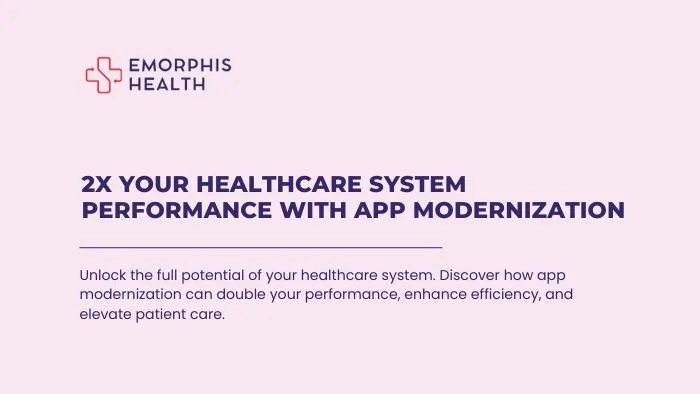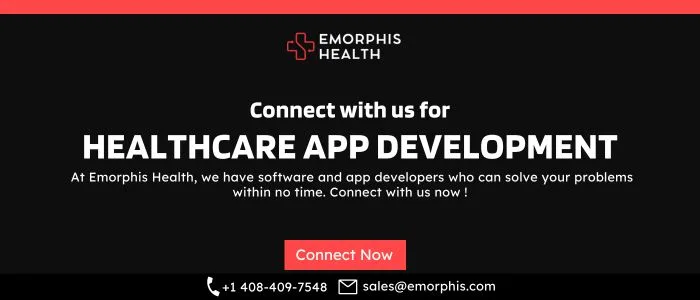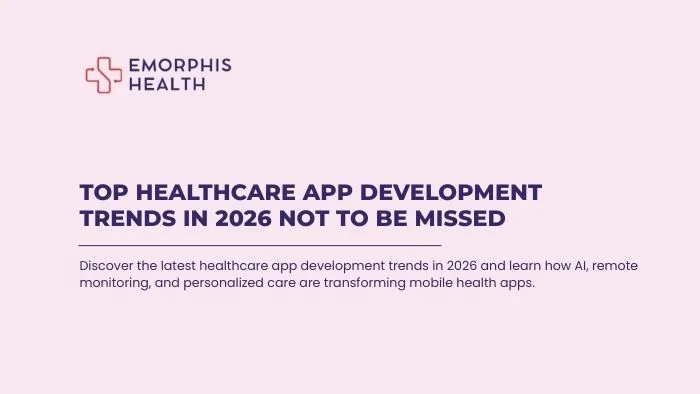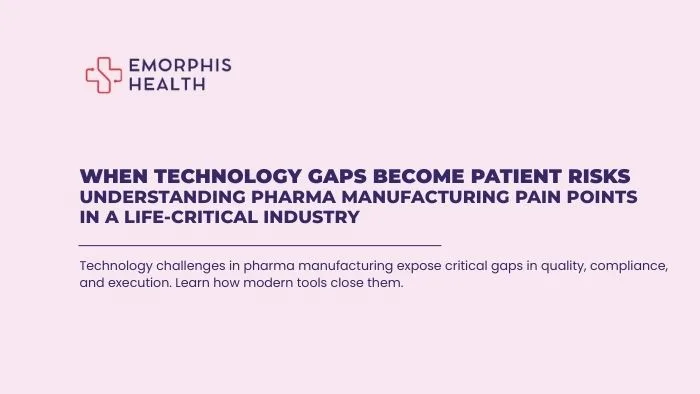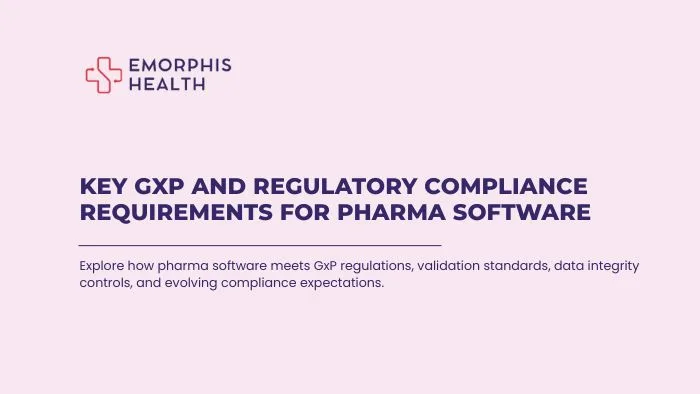Is Your Healthcare App Stuck in the Past? App Modernization Could Be the Prescription You Need!
See Contents
- 1 Is Your Healthcare App Stuck in the Past? App Modernization Could Be the Prescription You Need!
- 2 Introduction to Healthcare App Modernization
- 3 Why is Healthcare App Modernization Necessary?
- 4 Key Challenges of Legacy Healthcare Apps
- 5 How to Determine if Your Healthcare App Needs Modernization
- 6 Steps to Successfully Modernize a Healthcare App
- 7 Benefits of Healthcare App Modernization
- 8 Should You Choose the Same Agency for App Modernization?
- 9 Conclusion: Is Your Healthcare App Ready for Modernization?
Let’s face it—when was the last time you enjoyed using your healthcare app? Does it feel like it belongs in the same era as floppy disks? Does it crash just when you’re trying to pull up important patient data, or worse, does it still think “cloud” means a fluffy thing in the sky?
If your healthcare app feels more like a relic from the Stone Age than a modern tool, you’re not alone. But here’s the good news: it doesn’t have to stay that way! With app modernization, you can bring your app back to life with better performance, cutting-edge features, and faster operations.
Still unsure if app modernization is for you? Ask yourself:
- Are patients complaining about your app’s slow performance or outdated interface?
- Is your app ready to handle today’s demands, from telehealth to AI-powered diagnostics?
- How secure is your patient data—are you keeping up with the latest healthcare regulations?
If any of these questions made you think, “Uh-oh,” then stick around. In this article, we’re diving deep into app modernization—what it is, why your app desperately needs it, and how you can ensure your healthcare app doesn’t just survive but thrives in today’s digital world.
Introduction to Healthcare App Modernization
App modernization refers to the process of updating and transforming legacy healthcare applications into modern, user-friendly, and scalable systems. These legacy apps were often designed years ago and can no longer meet the demands of today’s digital healthcare ecosystem. App modernization helps healthcare organizations adapt to changing technology, regulatory requirements, and patient expectations.
Modernizing your healthcare app involves updating its architecture, improving user experience (UX), ensuring compliance with industry regulations like HIPAA, and integrating advanced features such as AI-driven analytics or telehealth services.
When discussing app modernization, the data tells a compelling story. According to Gartner, it is projected that by 2025, 90% of existing applications will still be operational but will require ongoing modernization to stay relevant (report).
Recent statistics highlight a notable increase in modernization efforts. A survey revealed that an impressive 92% of organizations are currently engaged in at least one project aimed at modernizing their applications. This surge in activity is fueled by several key factors, such as the desire to enhance scalability, boost performance, and take advantage of cutting-edge technologies, including cloud computing, artificial intelligence, and the Internet of Things (report).
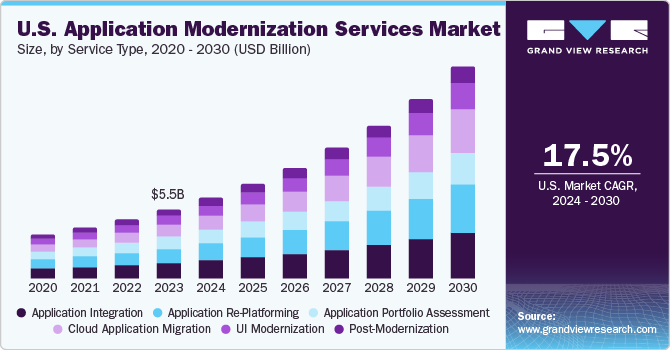
The market for application modernization services was estimated at USD 17.80 billion in 2023, with expectations of a 16.7% compound annual growth rate (CAGR) from 2024 to 2030 (report). Additionally, the global market for mobile health (mHealth) applications stood at USD 33.17 billion in 2023 and is anticipated to grow to USD 88.70 billion by 2032, reflecting a CAGR of 11.7% during this period (report).
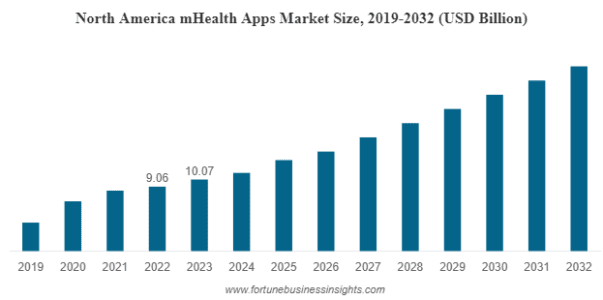
Furthermore, the value of the global application modernization services market was $15.5 billion in 2022 and is projected to reach $69.8 billion by 2032. Notably, the healthcare sector is expected to play a significant role in driving this modernization trend (report).
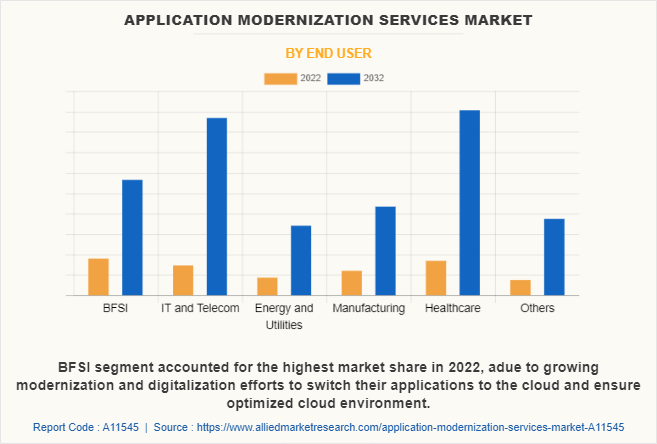
Why is Healthcare App Modernization Necessary?
Healthcare apps have become essential for delivering patient care, managing health records, and ensuring smooth communication between providers and patients. However, as technology advances, many healthcare apps fall behind, leading to inefficiencies and increased risks. Here are the key reasons why app modernization is crucial for healthcare organizations:
- Meeting New Standards: Healthcare regulations such as HIPAA and GDPR are constantly evolving, and older apps may not meet current security and compliance standards. Modernizing ensures your app remains compliant and protects sensitive patient data.
- Government initiatives: Today governments worldwide are driving demand for application modernization services. Governments are investing heavily in digital transformation to improve public services and ensure compliance. This shift is compelling organizations to modernize their applications to meet changing standards and provide seamless digital experiences.
- Enhanced Patient Experience: Patients today expect apps that are fast, reliable, and easy to navigate. Outdated healthcare apps may have a clunky interface, slow loading times, or even functionality issues, leading to a poor patient experience. App modernization improves the user experience by incorporating modern design principles and faster performance.
- Scalability & Performance: As your healthcare practice or hospital grows, so do the demands on your app. Legacy apps struggle to handle increased user traffic and data loads. Modernizing your app allows it to scale efficiently, improving performance and ensuring your app runs smoothly, even during peak usage.
- Integration with Modern Healthcare Solutions: Modern healthcare relies on integration with other tools such as electronic health records (EHRs), telemedicine platforms, remote monitoring devices, and AI-powered diagnostic tools. App modernization ensures seamless integration with these modern technologies, making your app more powerful and versatile.
Key Challenges of Legacy Healthcare Apps
Legacy healthcare applications may still work but often create more problems than they solve. Here are some of the common challenges healthcare organizations face with outdated apps:
- Security Vulnerabilities: Legacy apps are often built on outdated software that is more vulnerable to cyberattacks. These vulnerabilities can lead to data breaches, risking patient privacy and trust. App modernization addresses these security gaps by incorporating the latest encryption, authentication, and security protocols.
- Incompatibility with Modern Devices and Platforms: Many legacy apps are not compatible with today’s mobile devices, operating systems, or cloud environments. This results in poor user experiences and limits the app’s functionality.
- High Maintenance Costs: Maintaining outdated apps is expensive. They require constant updates and patches to stay functional, consuming valuable time and resources. By modernizing your healthcare app, you reduce long-term maintenance costs, freeing up your team to focus on more strategic initiatives.
- Limited Functionality: Legacy apps often lack the features that modern healthcare systems demand. Features like telemedicine, AI-powered diagnostics, or real-time data analytics are difficult to integrate with older systems. App modernization enables you to incorporate these new technologies seamlessly.
How to Determine if Your Healthcare App Needs Modernization
Here are signs that your healthcare app may need app modernization:
- Poor User Feedback: If patients or healthcare providers are frequently complaining about app performance, user interface issues, or functionality, it’s a clear indicator that your app needs modernization.
- Slow Performance: If your app takes too long to load or crashes frequently, it’s time for a performance boost through modernization.
- Compliance Issues: Non-compliance with healthcare regulations like HIPAA can lead to hefty fines and damage to your reputation. If your app is no longer compliant, modernization is essential.
- Lack of Modern Features: If your app is missing key features like telemedicine, remote patient monitoring, or AI-driven analytics, it’s time for an upgrade.
Now, let us check the detailed steps to be taken for app modernization.
Steps to Successfully Modernize a Healthcare App
Healthcare app modernization is a multi-step process that involves strategic planning and execution.
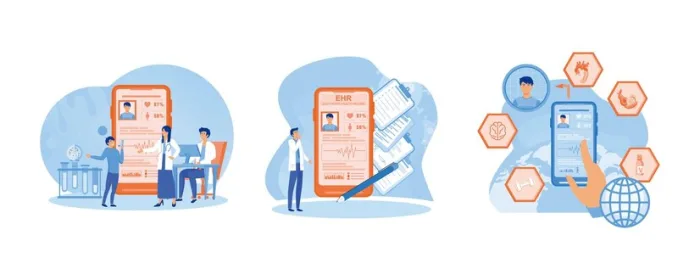
Here’s a step-by-step guide to modernizing your app:
Step 1: Assess Current App Performance and Capabilities
Before modernizing, it’s crucial to assess the performance and limitations of your current healthcare app. Conduct a comprehensive audit to identify areas that need improvement, such as speed, user interface, security, and integration capabilities.
Step 2: Define Modernization Goals
Once you’ve assessed your app, define clear goals for app modernization. What do you want to achieve? These goals could include improving speed, adding new features, or making the app compliant with updated healthcare regulations.
Step 3: Choosing the Right Technologies
Healthcare apps today rely on a wide range of technologies, including cloud computing, AI, APIs, and mobile-first design. During app modernization, select technologies that will ensure scalability, security, and seamless integration with other healthcare tools.
Step 4: Partnering with the Right Development Team
Choosing the right development partner is critical for successful app modernization. Ensure your team has experience in healthcare IT, regulatory compliance, and modern technology solutions like AI and cloud computing.
Step 5: Testing, Deployment, and Continuous Updates
App modernization doesn’t end with deployment. After launching the modernized app, continue to monitor performance, gather feedback, and update regularly to meet new technological advancements and user expectations.
Benefits of Healthcare App Modernization
Modernizing your healthcare app brings numerous benefits, including:
- Improved Patient Care: With modernized apps, healthcare providers can offer faster, more efficient, and secure services. Patients can access their health records, schedule appointments, and communicate with providers more easily.
- Cost Efficiency: App modernization reduces maintenance costs associated with outdated systems. It also increases the app’s overall performance, reducing the need for expensive patches and updates.
- Regulatory Compliance: Modern apps are designed to comply with healthcare industry regulations, ensuring that your organization stays compliant with data security laws like HIPAA.
- Future-Proofing: App modernization makes your healthcare app scalable, ensuring it can handle future demand and integrate with emerging healthcare technologies.
Should You Choose the Same Agency for App Modernization?
No, you might not want to stick with the same agency that developed your healthcare app for its modernization. While they might be familiar with your application, here are some important factors to consider:
- Experience with Healthcare Regulations: It’s crucial that your agency has a deep understanding of healthcare compliance requirements, such as HIPAA and GDPR. If they lack this experience, it could put your app—and your organization—at risk.
- Expertise in Modern Technologies: Modernization often involves integrating advanced technologies like cloud computing, artificial intelligence, and secure APIs. If your current agency isn’t well-versed in these areas, it might be time to seek a new development partner with the necessary expertise.
- Post-Modernization Support: Remember, app modernization isn’t just about the initial launch; it requires ongoing maintenance and support. Look for a partner that offers continuous assistance, regular updates, and scalability options to adapt to future needs.
Choosing the right agency can make all the difference in the success of your app modernization project.
Conclusion: Is Your Healthcare App Ready for Modernization?
In the fast-paced world of healthcare, keeping your app up to date is essential for delivering high-quality patient care and staying competitive. App modernization improves app performance, enhances security, and ensures compliance with industry regulations. If your healthcare app is slow, outdated, or lacking modern features, now is the time to consider modernization.
By modernizing your healthcare app, you can ensure it meets today’s demands while positioning your organization for future success. If you’re ready to explore app modernization, reach out to experts who can guide you through the process and unlock the full potential of your healthcare system.
When it comes to healthcare app modernization, partnering with the right experts can significantly enhance your project’s success. At Emorphis Health, we specialize in hiring top-notch healthcare app developers who possess the expertise and experience necessary to elevate your application to the next level. Our team is well-versed in the latest technologies and healthcare regulations, ensuring that your app not only meets compliance standards but also incorporates cutting-edge features. With our comprehensive healthcare app development services, you can trust that we will work closely with you to understand your unique needs, providing tailored solutions that drive efficiency and improve patient care.
Choose Emorphis Health to unlock the full potential of your healthcare applications and stay ahead in this rapidly evolving industry.

